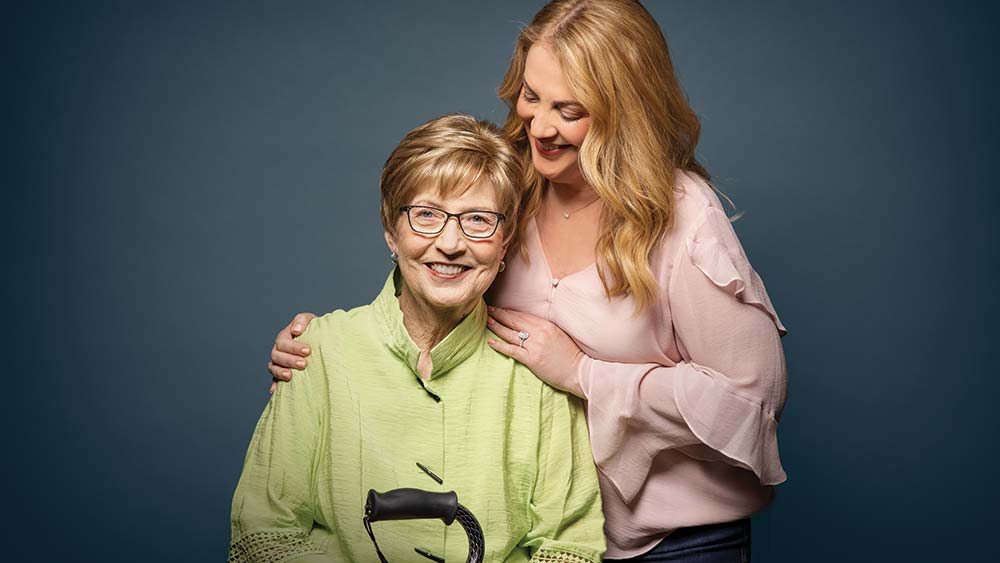

Caring for Seniors With Incontinence
We’ve all experienced the urgency of getting to the bathroom in time, but for someone with incontinence, it’s often too late. Although incontinence can happen at any age, the National Institute on Aging notes it is more common in the elderly.
What Is Incontinence?
Incontinence is a condition where there is an involuntary loss of bladder or bowel control. This means a person may experience leakage or accidents of urine or stool. There are several reasons why senior adults may experience incontinence. Some common causes include:
- Weak pelvic floor muscles: As people age, the muscles that support the bladder and bowel can weaken, leading to incontinence.
- Hormonal changes: In women, the decrease in estrogen levels during menopause can contribute to bladder control problems.
- Prostate issues: In men, an enlarged prostate gland can cause urinary incontinence.
- Neurological conditions: Conditions such as Parkinson’s disease, multiple sclerosis or stroke can affect the nerves that control bladder and bowel function.
- Medications: Certain medications can increase the risk of incontinence or affect bladder control.
- Chronic conditions: Conditions such as diabetes, arthritis or obesity can contribute to incontinence.
- Cognitive impairment: Dementia or Alzheimer’s can affect a person’s ability to recognize the need to use the bathroom or remember to do so.
Because incontinence can have multiple causes, it is important to address the underlying issue to manage and treat the condition effectively. Consulting a health care professional is the best course of action to determine the cause and develop an appropriate treatment plan.
Managing Incontinence in Seniors
Caring for a senior with incontinence can be physically and emotionally demanding. It involves managing frequent accidents, assisting with personal hygiene, and constantly monitoring for signs of discomfort or infection. Caregivers may experience frustration, helplessness and exhaustion as they face a constant need for cleaning, changing and providing support. Such tasks can be time-consuming and disrupt daily routines. Despite the challenges, providing compassionate care is essential to the older adult’s well-being; therefore, caregivers are encouraged to seek assistance from health care professionals and support groups to help alleviate the stresses of caregiving.
If you are a caregiver of an older person with incontinence, here are some resources and support options available to you:
- Education and information: Find information about incontinence management from resources such as the AARP, National Institute on Aging, and National Association for Continence. These resources can help you better understand the condition, its causes and available treatment options.
- Support groups: Join a support group specifically for caregivers of incontinent adults, which provides a safe space to share experiences, seek advice, and receive emotional support from others who are going through similar situations.
- Respite care: Take breaks to care for your well-being. Respite care services provide temporary relief by arranging for someone else to care for your older loved one, allowing you to take time off.
- Professional assistance: Professional in-home care can assist with incontinence management, personal care and other caregiving tasks, giving you some relief.
- Counseling or therapy: Individual counseling or therapy sessions can provide a supportive environment for you to express your feelings, cope with stress, and develop strategies to help you live well.
- Self-care: Prioritize your well-being. Continue engaging in activities, such as exercising, pursuing hobbies, practicing relaxation techniques, and making social connections. Taking care of your physical and mental health is essential for providing effective care to others.
Preventing Social Isolation Due to Incontinence Issues
Concerns about dealing with incontinence outside of the home often lead to social isolation for seniors and their caregivers. However, it is important to maintain a sense of social interaction. Doing so requires extra consideration to ensure the comfort and welfare of the elderly loved one dealing with incontinence.
These tips may help you plan when you and your older loved one with incontinence go on an outing:
- Choose accessible locations: Select destinations that have easily accessible and clean restroom facilities with grab bars and adequate space.
- Plan frequent bathroom breaks: Schedule regular bathroom breaks to allow your loved one to use the restroom and manage their incontinence. Take into account your loved one’s usual bathroom routine, and plan breaks accordingly.
- Pack necessary supplies: Carry a bag with essential supplies, such as extra absorbent pads or adult diapers, wipes, disposable bags for soiled items, and a change of clothes. Having these items readily available can help manage any accidents that may occur.
- Use discreet clothing: Choose clothing options that are easy to remove and discreet in case of accidents. Elastic waistbands or clothing with Velcro closures can make it easier to change if needed.
- Plan for transportation: Consider the mode of transportation and ensure it is comfortable and accessible for your loved one. If using public transportation, check if accessible restrooms are available during the journey.
- Inform others: If you are going on an outing with a group or visiting a public place, inform the necessary individuals about your loved one’s condition. This can include family members, friends or staff at the destination. It helps to have a support system in place in case assistance is needed.
- Be understanding and patient: Understand that accidents can happen despite careful planning. Be patient and supportive if your loved one experiences any difficulties or embarrassment. Offer reassurance and help them manage the situation discreetly.
How Right at Home Can Help
No one should face the difficulties of incontinence alone. Right at Home’s professional caregivers are passionate about helping seniors and their families navigate the aging journey. Services ranging from light housekeeping and help with meals to hygiene and personal care can help give you the break you need and provide your loved one with the compassionate care they deserve. Use our office locator to find the location nearest you and talk to an aging adviser to find out more.
Interested in getting tips, advice and information related to caring for your loved one? Subscribe to our Caring Right at Home e-newsletter today.







